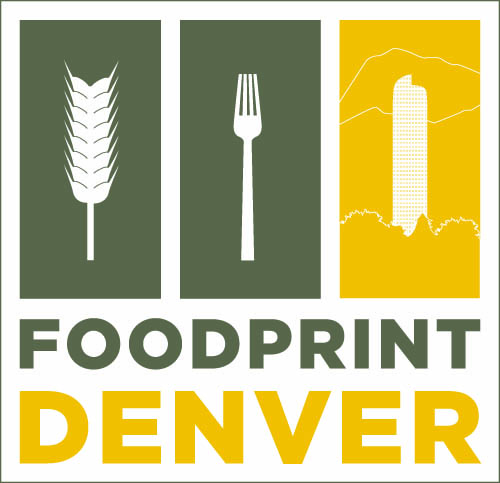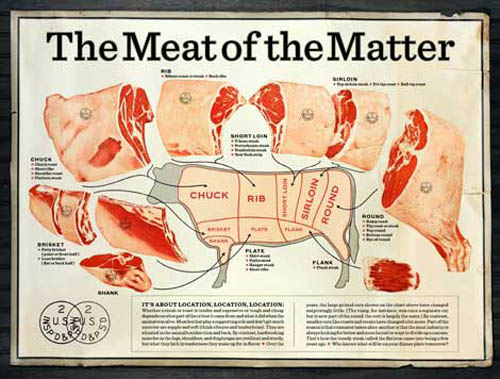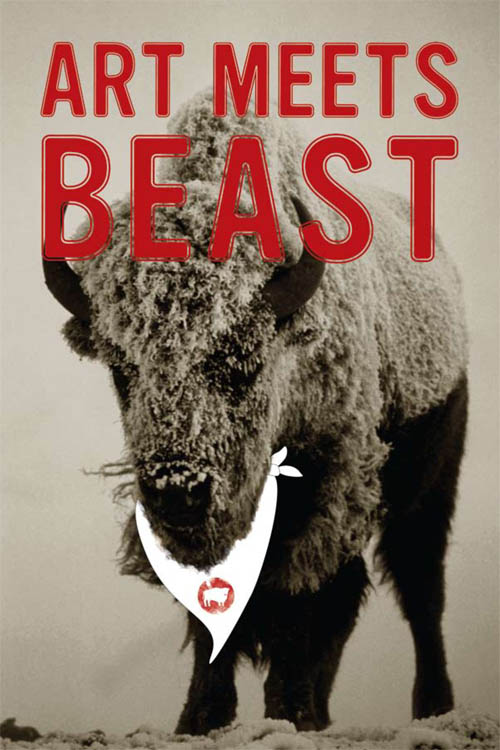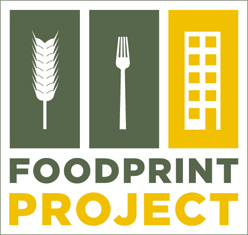
For Foodprint Denver, the third in a series of international conversations about food and the city, we’re trying something new.
As part of the Denver Museum of Contemporary Art‘s three-day bison roasting extravaganza, Art Meats Beast, we’ve organized a series of quick-fire Q&As focused on the relationship between meat and design. Over the course of the afternoon, we will explore the Coloradan meatscape at a variety of scales, beginning with the intimate architecture of cattle musculature before moving to the spaces in which we process and consume carcasses and steaks. We’ll end up with a look at the ways that ranching shapes land-ownership and prairie ecology, as well as the spatial implications of livestock economics and health regulation.
Date: Thursday, November 11
Time: 4:00 p.m. to 6:00 p.m.
Location: MCA Denver, 1485 Delgany St (The Whole Room) (directions and map)
Tickets: $15/$10 Members. Tickets can be purchased online, or by calling 303.298.7554 x 200.
Program Format:
Six back-to-back, live, mini interviews on meat and design, with experts Keith Belk, Pete Marczyk, Temple Grandin, Holly Arnold Kinney, Elizabeth Dunn, and Peter Decker, followed by an open panel discussion.
Interviewers: Sarah Rich and Nicola Twilley
Keith Belk
Keith Belk is Professor of Animal Science at Colorado State University, where his research focuses on red meat safety and quality and live animal development. His many innovations include the Smart Machine Vision Beef Cam, which draws on the technology Levi Strauss uses to measure the shade of stonewashed jeans in order to predict tenderness, as well as the Carcass Optimizer, a tool designed to help packers and processors breakdown their animals into the most profitable combination of cuts.
Pete Marczyk
Pete Marczyk is a local chef, and founder and owner of Marczyck Fine Foods, a gourmet grocery store whose in-house butcher, Jimmy Cross, will break down the bison that forms the centerpiece of the MCA’s Art Meets Beast festivities.
Temple Grandin
Temple Grandin is Professor of Animal Science at Colorado State University, a designer of livestock handling facilities, and a noted autism self-advocate. Nearly half of all cattle slaughtered in North America are handled in a center track restrainer system that she designed, while her curved chute and race systems are used worldwide to reduce stress on livestock during handling. She is a best-selling author and speaker, and in 2010, she was named one of the hundred most influential people in the world by Time magazine. The recent HBO movie of her life, starring Claire Danes, won seven Emmy awards earlier this year.
Holly Arnold Kinney
Holly Arnold Kinney is the proprietress of The Fort restaurant, originally founded by her father, Samuel P. Arnold, in 1963. The Fort is housed just outside Denver in a replica of Bent’s Old Fort, a fur-trading post on the Santa Fe trail. In addition to its adobe architecture, The Fort is known for its buffalo, among other items on its authentically Western, historically-inspired menu. Kinney has recently published a new cookbook, Shinin’ Times at The Fort.
Elizabeth Dunn
Elizabeth Dunn is Associate Professor of Geography at UC Boulder. Her research focuses on public health and agriculture, examining the way that food safety regulation and management systems interact to shape both the livestock industry and the modern state. Her book, Privatizing Poland: Baby Food, Big Business and the Remaking of Labor, won the 2005 Orbis Book Prize.
Peter Decker
Peter Decker is a rancher in Ridgway, and a former Commissioner of Agriculture for Colorado. An American historian by training, he has taught at Columbia, Barnard College, Manhattan College and Duke University. He served as a policy analyst and speech writer for Senator Robert Kennedy during his presidential campaign, a war correspondent in 1970 for the Associated Press in Vietnam and Laos, and a penguin in Andy Warhol’s film, It’s A Dog Life . He currently serves as a director of the National Western Stock Show and is the author of several books, including his most recent, a novel called Saving the West.


